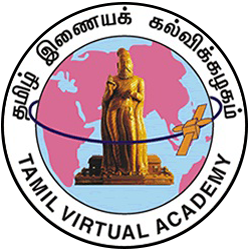Primary tabs
-
Lesson - 4 : d06114
Language & Literature
This lesson talks about language, the relation it has with literature and the characteristics it possesses. Language forms the basis for any literary composition. Life is depicted in literature through language; hence language is a must for any literary composition. Like sculptures carved out of stone and paintings drawn using paints, literature is composed using a language. Roman Jacobson, the famous research scholar on languages considers language to be a verbal art. According to Constantine Fedin, “Language will always be the basis for a literary composition”.
Language gives shape to a literary composition. When language is used in a correct manner, the output will be as desired. Language in literature is built up on the following bases - period, place, genre & type and the background of the characters. There are different types of literary works; namely - short stories, novels, poems and these are responsible for differences in language. Language also changes in accordance with the target audience. Writing a sports column is different from writing a poem or a short story.
A word forms the base for any language. It is not necessary to have a lot of words when composing a literary work; instead the correct words should be used. Words that have a deep meaning need to be used. A word has two main characteristics namely - denotative/referential and suggestive /connotative. A word can give a definition either by itself or as a part of a sentence. When words are combined together, a new twist is given to the sentence. A word does not necessarily need to have a single meaning; it can have several meanings. According to I.A. Richards words have these following characteristics also - sense, feeling, tone and intention.
Language reflects the period in which the literary work was composed. Any literary work also reflects the period in which it was composed by the style of the composition. This is helpful for us to understand the history of the era in which the literary work was composed. For example Kalki’s Parthiban Kanavu reflects the Pallava period. Language also has various dialects and regional differences. These regional languages are also based on caste differences. Even in today’s literature there is a difference between the language styles used in short stories and novels.
From this lesson we have learnt about the relationship between language and literature. We also saw the importance of words in a language. Language forms the base for any literary composition and life is depicted in literature through language. Language is a must for any literary composition, like stones for carving sculptures. We also saw that language reflects the period in which the literary work is composed. So language forms the base for any successful literary composition.முன்


